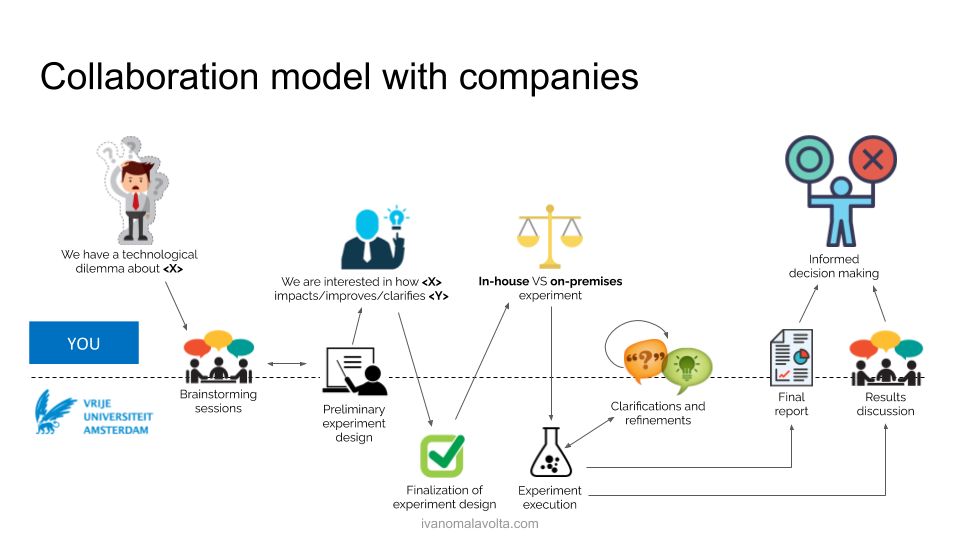What is the Software Revolution group?
The Software Revolution group focuses on incorporating ethics and human perspectives into various aspects of software and its development.
The main components of the Software Revolution group
In a nutshell, the Software Revolution group is composed of a few current projects: intersectional, discrimination, mining patterns, mind the gap, developer bias, survey, ethical concerns taxonomy, ethical concerns literature review,
-
The Software Revolution group is a Master course in the Software Engineering and Green IT program of the Computer Science master of the VU. The course takes place every year in Period 1 (September-October) and it aims at teaching students the fundamentals of Empirical Software Engineering in the context of energy efficiency. The slides we used in 2016 edition of the Green Lab course are available here, give a look to them for understanding how we (and you!) can measure software for making it more green and sustainable.
-
The Software Revolution group is also a research laboratory, currently located in the 7th floor of the NU building at the VU. The lab hosts a number of servers and a test farm composed of several Android mobile devices, instrumented with state-of-the-Art energy sensors, to run our experiments on software energy efficiency. In this GitHub page we make publicly available all the experimental data we gather in the Green Lab. Stay tuned for new experiments.
-
The Software Revolution group is also a collaboration platform with companies and other institutes (see here our brochure about how we can collaborate together). Starting from a technological dilemma proposed by our partners, together we undertake a well-defined, robust, and predictable exploration for solving it. As shown in the image below, we organize brainstorming sessions, produce preliminary designs of the experiment, evaluate technical alternatives, up to the delivery of a final comprehensive report with detailed results about the collected measures, and support our partners in the final phase of decision making.

Scientific publications supported by the Software Revolution group
annas, laurens, whistleblowing 2
- Raluca Maria Hampau, Maurits Kaptein, Robin van Emden, Thomas Rost, Ivano Malavolta (2022). An empirical study on the Performance and Energy Consumption of AI Containerization Strategies for Computer-Vision Tasks on the Edge. In Proceedings of the International Conference on Evaluation and Assessment on Software Engineering (EASE) 2022. PDF